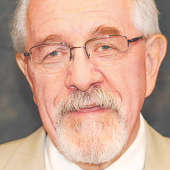- Christmas shopping is done, presents wrapped, strings attached? (12/14/16)
- Cecil is dead and human lives are threatened every day (8/12/15)
- As state flags go, Nebraska's ranks 50th (7/8/15)
- When everything looks like a nail (4/29/15)
- Who remembers to coal slurry pipeline debate? (3/11/15)
- More revelations in Department of Corrections mess (12/17/14)
- The Legislature becomes more Republican (11/19/14)
Opinion
Towns could opt for sales tax plan to entice new residents
Wednesday, April 10, 2013
In 1991 lawmakers approved the Local Option Municipal Economic Development Act (LB840) to allow municipalities to vote and approve additional sales tax to be used for local projects under guidelines approved by the state.
Twenty-two years later, 60 Nebraska communities are using local option taxes to fund various economic development projects.
Last year, the Legislature approved yet another option for the money, an incentive to lure film companies to choose Nebraska communities as movie locations. Other activities have been added in two decades and some have been rejected. It's all spelled out in state statute, Section 18-2705. Cities and villages of all sizes located in every corner of the state have voted to create and fund local economic development programs.
Lawmakers have now passed a measure (LB295) to add to those activities the option to provide relocation incentives for new residents. Senator Kate Sullivan of Cedar Rapids, sponsor of the measure, convinced her colleagues that the plan would leave the decision about what constitutes relocation incentives for new residents and the decision about whether to provide them up to each city or village on a recommendation by the local economic development board. The move would have to be approved by local elected officials on the city council or village board.
Local decisions by local people expending local funds. Both Sullivan and her city colleague, Urban Affairs Chair, Senator Amanda McGill of Lincoln, underscored that concept and reminded fellow lawmakers of it numerous times during two rounds of floor debate before the bill passed 44-0. Simply put, the bill has no fiscal impact on any state agency, something that almost assures a gubernatorial signature, and is subject to local approval and local control, something that makes sense.
Sullivan said the bill grew out of several years of discussion about how to reverse the loss of residents in rural Nebraska. She said she worked several years ago with Senator Galen Hadley of Kearney, now chair of the Revenue Committee, to study rural depopulation. A public hearing was held in Kearney in the fall of 2011 and senators heard from a number of rural economic development coordinators. Sullivan said many of those people noted that they had jobs available in their communities, but didn't have the skilled people to fill them.
She said she has continued discussions with officials in her legislative district (41) and has been told that while they have unemployment rates of 3 percent or less, they lack people such as plumbers, electricians, nurses, welders, IT professionals, and manufacturing workers to fill good jobs. She said the lack of people to fill these jobs can actually limit a business' ability to grow and expand, and certainly limits the opportunity for a rural community to grow and thrive.
The Nebraska League of Municipalities supported the bill, which was advanced from Urban Affairs without a dissenting vote. McGill said there were plenty of checks and balances in the law to allow voters to change or otherwise rescind the activity if it isn't working. She said it is unknown how many of the 60 eligible communities will even use the option.
Kearney Mayor Stan Clouse said his community needs welders to work in a large number of industries. Columbus Economic Council co-chair, David Bell, said he believes bringing more workers to his city could assist in the effort to attract new companies. He said the lack of an available work force has hindered the city's ability to attract new businesses in the past.
Columbus and Kearney are larger than Sullivan's hometown of Cedar Rapids, population 374, but it's a rural issue. And one that has now, thankfully, been recognized and hopefully addressed. Time will tell. But that will be a local decision, and that alone is refreshing.

